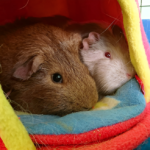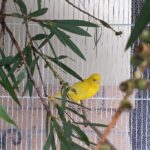To follow on from our monthly theme of prophylactic desexing of exotic pets today we’re talking about reptiles! Many people don’t realise that reptiles can get reproductive problems, particularly the females.
Snakes, lizards and turtles can all lay eggs (though not fertile) without the presence of a male, just like chickens! However, this does not always go so smoothly. Some reptiles that we see (such as dragons) are particularly prone to developing reproductive disease. The most common conditions that we see are pre-ovulatory follicular stasis and post-ovulatory follicular stasis.
Due to the high incidence of these diseases we now recommend that female bearded dragons, that aren’t to be used for breeding, are de-sexed to prevent these issues.
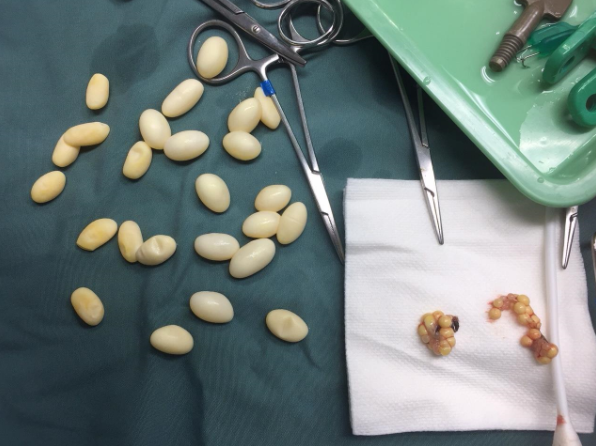
Photo caption: All of these eggs and ovaries were removed from a single bearded dragon that had post-ovulatory follicular stasis or ‘egg binding’
One of the most common reproductive diseases we see is pre-ovulatory follicular stasis, usually in bearded dragons. This occurs when the follicles on the ovary start to develop, but then become static instead of ovulating and developing into eggs. These are basically egg yolks sitting in the coelom (abdomen). These can then start to disintegrate or become infected, and can make the patient critically ill! This issue requires surgery to remove the follicles. This condition is particularly common in bearded dragons, which is why elective desexing is recommended in non-breeding animals. Surgery is much less risky as a preventative procedure in a healthy animal, than as a treatment in a very sick patient.
Another condition we often see in reptiles of all species (lizards, snakes, turtles) is post-ovulatory follicular stasis, also known as ‘egg binding’. This occurs when the follicles develop and ovulate into the oviduct, the shell develops around the egg and then the eggs become stuck and are not laid properly. This can occur for a number of reasons including low calcium levels and infection. Sometimes these patients can be treated with various medications, after determining the cause. However, sometimes these eggs also require surgical removal.
Reproductive issues are quite common, and one of the reasons we suggest yearly health exams for our reptilian pets! If you would like to book an appointment or have any questions please call the clinic on 07 3217 3533.
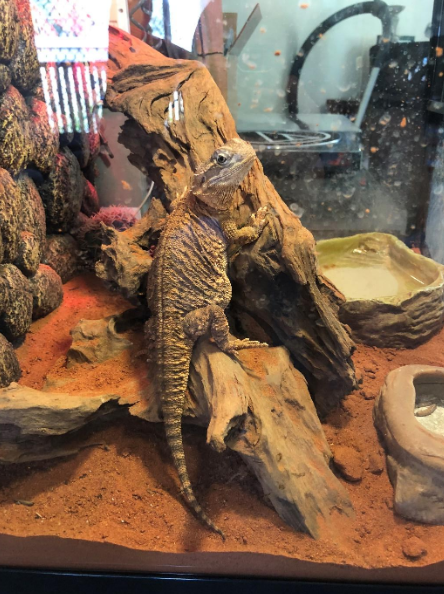
Photo caption: Sand is often used by dragons as a nesting substrate – they like to bury them for incubation!
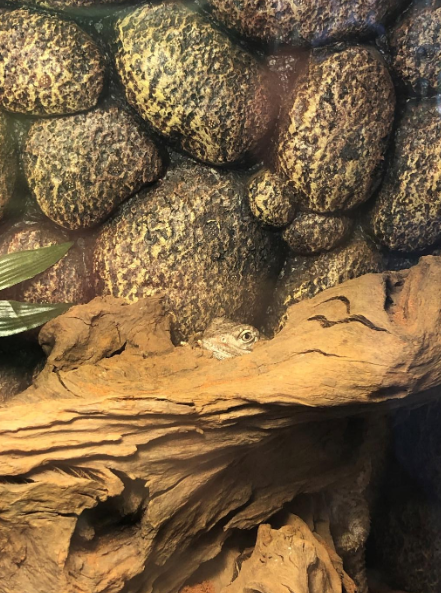
Photo caption – Look at this little cutie hiding from the camera!

